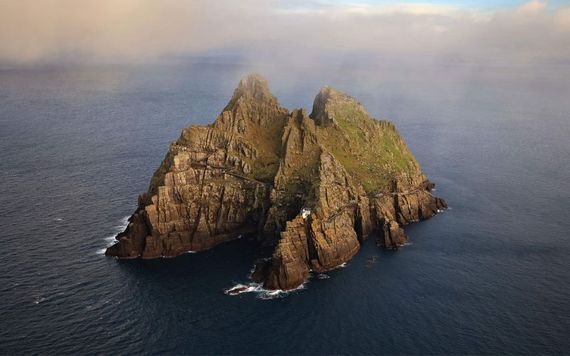Skellig Michael has been selected to participate in an international campaign to inform communities around the world about the impact of climate change on World Heritage sites.
The Great Skellig is one of ten UNESCO World Heritage sites to be selected for the new project, dubbed "ICOMOS-National Geographic Preserving Legacies: A Future for our Past".
Skellig Michael, the only European site selected, is joined by Petra in Jordan, the Rice Terraces of the Philippine Cordilleras, Angkor Archaeological Park in Cambodia, and other sites from around the world for the project.
The project aims to educate local communities about the dangers that climate change poses to World Heritage sites, enabling them to safeguard their cultural and natural heritage against future impacts.
As part of the project, the National Monuments Service and the Office of Public Works will hold two public meetings in Portmagee in the coming weeks to discuss the role that state bodies play in the protection of Skellig Michael. The meetings, which take place on April 8 and April 27, will also encourage community participation around climate change at the World Heritage site.
Connie Kelleher, a senior archaeologist with the National Monument Service, said the meetings will help inform the local community about how to protect the site.
"By anticipating and assessing the effects of climate, we hope to help and turn scientific knowledge into action to protect sites," Kelleher said in a statement.
"The first meeting on Monday, 8 April brings together the three state bodies who manage the site: the OPW, the NMS, and the National Parks and Wildlife Service (NPWS). Each will discuss their roles in managing and protecting the World Heritage Property and Natura 2000 site and will be on hand to answer questions about Skellig Michael.
"Later this month, on 27 April, a Climate Vulnerability Assessment (CVA) community workshop will address the work being done to anticipate climate change impacts and put in place adaptation measures to address them."

Skellig Michael.
Kelleher called on members of the local community to participate in the workshop on April 27, adding that it will help state bodies understand how community members perceive the impacts of climate change on the island.
"This will help to map out the priorities and inform measures that can be made to protect its future," Kelleher said.
"Anticipating and assessing the effects of climate can inform adaptation measures that will help protect Skellig Michael's unique heritage into the future."




Comments